Facts Women Should Know About Heart Health:
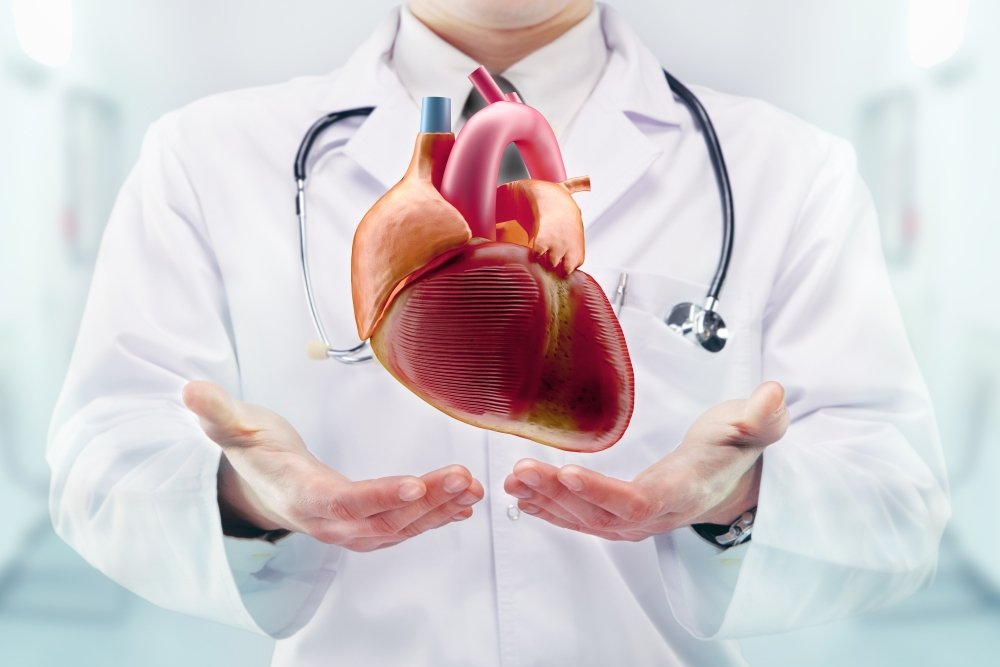
“The heart is one of the strongest muscles in the body, but it is more vulnerable than you may realize”. Doctor Jennifer Mieres says. It’s an ignored fact that women are more likely to die of heart disease than men. Although many efforts have been made to raise awareness still almost 45 percent of the population is unaware that heart disease is the leading cause of death in women. How to Prevent Heart Disease in Women: For heart diseases, certain conditions affect women but don’t affect men, like pregnancy-related heart disease or conditions related to heart failure. There are a few symptoms that can let women evaluate their heart condition, these symptoms include: Symptoms of a heart attack in women: Facts about women’s hearts: Heart Disease is Not a Men’s Disease: It seems possible to take heart disease as a man’s disease, as men are more likely to be overweight which is a major risk factor for developing heart disease. But the statistics for heart disease show a different result. Heart disease is the leading cause of death in women in the USA. Only 56% of women are aware of the symptoms and recognize heart disease as a leading killer. Women Are More Likely to be Misdiagnosed: When it comes to heart attacks specifically, women usually receive misdiagnoses more than men. This happens largely because women mostly experience non-stereotypical symptoms, and don’t take their symptoms seriously, or attribute these symptoms to something else. For this reason, any woman experiencing jaw, neck, or back pain should take it as an alarm for a heart attack. Women should pay extra attention to any unusual or sudden-onset of symptoms. Heart Disease Doesn’t Discriminate on Age: Some conditions affect women differently than men. But age does not matter for prevailing heart conditions. Women 65 and above are more prone to developing heart problems. That’s why they are mostly recommended for regular checkups. Women’s Hearts Are Smaller Than Men’s: Women’s hearts are slightly smaller than men’s but because of this difference, a women’s heart beat slightly faster than a men’s on average. It differs from 4 to 10 heartbeats per minute depending on the individual. Women’s Hearts are Adaptable: Our hearts are dynamic. For example, in pregnancy women’s hearts beat faster, and the blood vessels are more dilated. Women usually experience lower blood pressure during pregnancy. During the post-partum period particularly the first two weeks following pregnancy, a woman’s heart rate and output will return to their previous function within a year. Smoking Kills: The problem caused by the consumption of tobacco is irreversible for both men and women. If you are a woman, you are 25% more likely to develop heart disease than men who smoke at the same intensity. But it is luckily preventable. By quitting early, women can dramatically decrease their fear of stroke, heart attack, or heart failure. After you completely quit smoking, here is what happens: This is just the beginning, as by quitting tobacco completely, you will greatly improve your health and, with time, eliminate the chances of getting heart failure. Conclusion: Heart disease is a serious health concern for women, and it’s important to prioritize heart health in your daily life. By making healthy lifestyle choices, such as exercising regularly, eating a balanced diet, and managing stress, you can reduce your risk of developing heart disease. Additionally, being aware of your blood pressure and cholesterol levels, and being in constant contact with your health care provider at Heart Experts of Florida can help women take care of their heart health and ensure a safe future without any trouble.
Natural Ways to Lower Blood Pressure | Heart Experts of Florida

Blood pressure is the force of your blood pushing against the walls of your arteries. Each time our heart beats, it pumps blood to our arteries. High blood pressure usually has no symptoms. The only way to find out is by getting it checked regularly with proper equipment. There are certain lifestyle changes to adopt to lower the risk of high blood pressure. These include: Lose Extra Pounds: Blood pressure often increases with weight gain. Weight loss is one of the most effective lifestyle changes for controlling blood pressure. Obese people often suffer from high blood pressure, so we should keep in mind that with each kilogram we lose, we will also decrease the blood pressure at some point. Exercise Regularly: Regular physical activity can lower high blood pressure from 5 to 8 mmHg. It is recommended to exercise regularly to keep your blood pressure from rising again. Exercises such as aerobics can help lower blood pressure. Other examples of exercises include walking, jogging, cycling, swimming, and dancing. It is always important to discuss which exercises are appropriate for your health needs with your healthcare provider. Eat a Healthy Diet: To control high blood pressure, it is important to eat a diet rich in whole grains, fruits, vegetables, low-fat dairy products, and foods low in saturated fat and cholesterol that can lower blood pressure by 11 mmHg. Potassium in your diet can lessen the effect of salt on blood pressure. The best example of this diet includes fruits and vegetables. It is equally important to check with your doctor about the amount of potassium you should consume. Reduce Intake of Salt: To begin with, just reducing a little amount of salt can improve heart health. The effect of sodium intake on blood pressure varies from person to person. However, a lower sodium intake is ideal for most adults. Limit Alcohol: Limiting alcohol to less than one drink a day for women and two drinks a day for men can help lower blood pressure. Drinking too much alcohol can raise blood pressure by several points while eliminating the effect of medicines taken to control it. Quit Smoking: Smoking increases blood pressure. Quitting smoking as soon as possible will help lower blood pressure and improve overall health and well-being. Sleep Well: Poor sleep quality, like getting fewer than six hours of sleep every night, can result in hypertension and high blood pressure. It is really important to keep a sleep schedule that you follow while creating a restful space for yourself. It is also important to watch what you eat. Moreover, it is recommended to avoid caffeine before bedtime so that it does not disrupt your sleep. Reduce Stress: Long-term stress contributes to high blood pressure. It is important to figure out what things are causing stress in the first place: Control Health Conditions: Work with your doctor to rule out any health conditions you are facing. While managing your overall health, you will surely be able to keep your blood pressure in check. Conclusion: High blood pressure is a serious health problem if left untreated. Fortunately, there are many natural ways to lower blood pressure that can be easily incorporated into daily life. These include maintaining a healthy diet, engaging in regular exercise, managing stress, getting adequate sleep, reducing salt intake, and avoiding smoking and excessive alcohol consumption. By making these simple lifestyle changes, individuals with high blood pressure can significantly improve their overall health and reduce their risk of serious complications. It is important to consult your healthcare professional at Heart Experts of Florida before making any significant changes to your lifestyle or treatment plan.
What to Expect From a Stress Test | Heart Experts of Florida
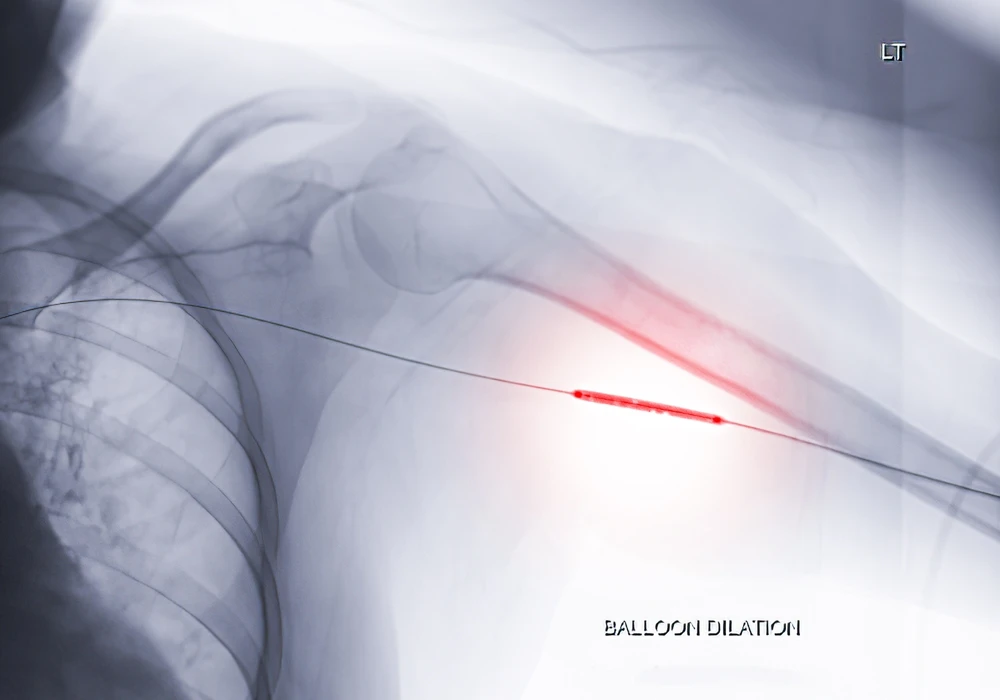
Stress is an emotional or physical tension that is created by perceived challenges, demands, or threats. A stress test shows how the heart works during physical activity. It can also be referred to as a stress exercise test. A stress test is used to diagnose coronary artery disease or irregular heartbeats. What Can a Stress Test Reveal? The stress test is commonly performed to learn: It’s a fact that if coronary heart diseases are left untreated, they can easily lead to a heart attack or stroke. There are different types of stress tests. They all help to check: How to Prepare for a Stress Test: Preparation while going for the test: While going for the test, you should be wearing loose clothing. As you have to temporarily remove your shirt while the doctor places electrodes on your chest. Before going for the stress test, a smoker needs to quit smoking for at least 24 hours before the test. Likewise, caffeine should be avoided for a day too. Four hours of complete fasting from food and water are required before the stress test. Doctors may also look at the medicines you are using and stop you from using a few before the test. During the test: During the test, you may be asked to use the treadmill. As the intensity of your workout increases every few minutes, the technician increases the incline or speed. You might get heavy breathing and sweat. But if there is any pain during the test, you should inform your technician. In the event of any pain or dizziness, the healthcare provider will stop the test immediately. It’s also important for the doctor to monitor a drop or increase in your blood pressure during the test. After the test: It’s quite normal to feel tired and winded after the test. But if you start experiencing symptoms associated with a heart like tightness or pain in your chest, you should immediately rush to the nearest emergency room or call 911. Kind of Stress Tests Performed: There are different types of stress tests being performed. The kinds of stress tests being performed include: Exercise stress test: For this kind of stress test, a person should wear comfortable clothes and walking shoes. This test involves the doctor hooking the person up to different medical devices that monitor the heart. To achieve this, the doctor will place the following: If a person is not exercising, they will receive an infusion of certain medicines through IV lines. It can cause shortness of breath and headaches. Nuclear stress test: During thenuclear stress test, a person should avoid applying lotion, oil, or cream to the skin. For this test, the doctor will give that person an injection of the tracer liquid. It may feel cold to apply. Here, the technician will take a few images of the heart before and after the exercise. The length of time spent exercising will depend on how often a person usually exercises and their medical history. It usually takes a couple of hours for this test to be completed. What Do Your Test Results Show: Possible results of your stress test show the following: Conclusion: A stress test is a valuable tool for evaluating an individual’s physical fitness and detecting potential health issues. It can provide helpful information to healthcare professionals that can help them make informed decisions about a patient’s treatment plan. By performing a stress test, individuals can gain insight into their overall health and identify any areas of weakness that may require attention. Although these tests can be challenging, the benefit of undergoing these far outweighs the temporary discomfort. At Heart Experts of Florida, our doctors try to provide stress tests to save patients from developing coronary diseases.
Heart Risks Associated with Cholesterol | Heart Experts of Florida
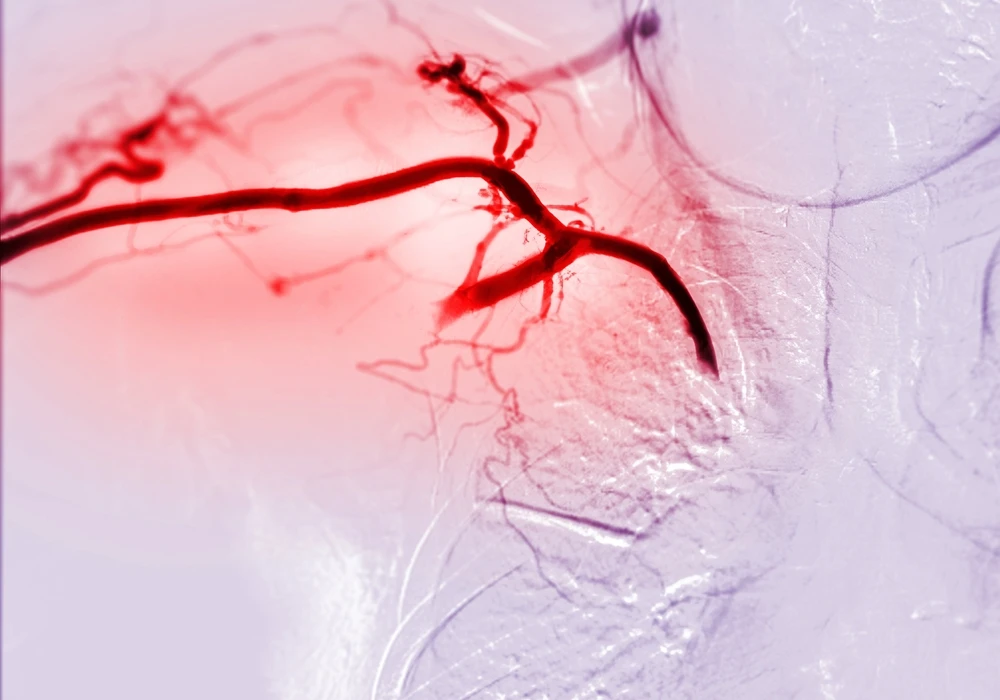
Cholesterol is a waxy substance used by all cells of your body to keep you healthy. It is carried through the body with the help of proteins in your blood. Proteins are generally substances that do most of the work for the cells and keep the body’s tissues and organs working as they should. Cholesterol generally enters your body through the food you eat. Too much cholesterol in the body can result in your body developing heart disease. Types of Cholesterol: Cholesterol can be further divided into two types: High-Density Lipoprotein: High-density lipoprotein is also known as good cholesterol. It generally helps to get rid of bad cholesterol from your blood by getting it to your liver, where it is broken down and removed from the body. Low-Density Lipoprotein: Low-density lipoprotein is known as bad cholesterol. Too much LDL can lead to the building of fatty deposits inside the walls of blood vessels. This builds up and narrows blood vessels, increasing the risk of a heart attack or stroke. What Heart Problems are Associated with High Cholesterol Levels: Medical problems and cholesterol are closely related. High cholesterol is mostly responsible for heart and medical problems like atherosclerosis. Here we will discuss all conditions that affect cholesterol levels. These include: How it Affects Cholesterol Levels in Your Body: There are a variety of factors that are responsible for the increase and decrease in your cholesterol levels. These include: Conclusion: High levels of cholesterol can lead to various heart risks, including heart disease and stroke. It is important to maintain healthy cholesterol levels by making lifestyle changes such as eating a balanced diet, exercising regularly, and avoiding smoking and alcohol consumption. In some cases, medicines may be necessary to manage cholesterol levels. At Heart Experts of Florida, our doctors strive to provide you with the best guidance and treatment to manage your cholesterol effectively and stay healthy.
Major Causes of Vascular Diseases | Heart Experts of Florida
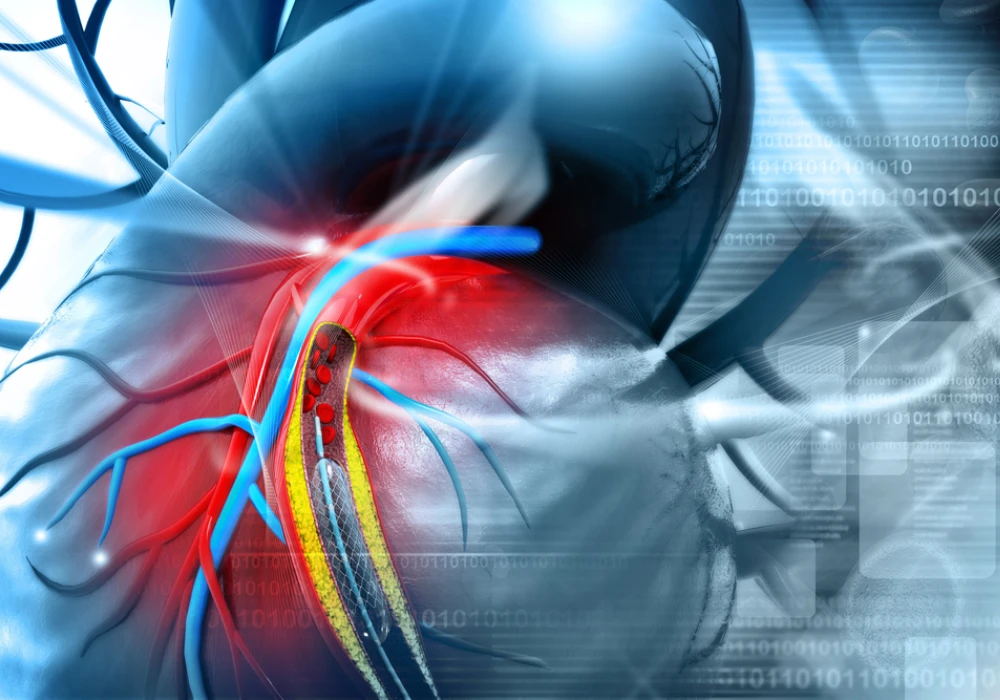
Vascular diseases are a group of conditions that affect the blood vessels, including the arteries, veins, and capillaries. These conditions can range from mild to life-threatening, and they can affect people of all ages and backgrounds. Understanding the common causes of vascular disease is crucial for preventing and managing these conditions, and it can help individuals take steps to protect their cardiovascular health. Common Symptoms of Vascular Disease: The common symptoms of having vascular disease can vary depending on specific conditions in the affected area. Common symptoms of vascular diseases include: Factors Leading to Vascular Diseases: There are quite a lot of factors that lead to vascular diseases. A heart patient should keep these in mind to avoid further heart problems and lead a healthy life. The most common factors include: Taking care of these factors and getting regular checkups can save you from developing serious cardiovascular complications. Treatment Options for Vascular Diseases: Mainly, the treatment options available for vascular diseases depend on the different conditions. The main treatment options that are usually adapted include: Conclusion: Vascular diseases are complex conditions that can have a significant impact on a person’s health and quality of life. While some risk factors for vascular diseases cannot be controlled. Those include age, gender, and family history. But other lifestyle-related factors like diet, physical activity, and smoking can be modified to reduce the risk of developing these conditions. By adopting healthy lifestyle habits and working closely with our healthcare providers at Heart Experts of Florida, you can manage your existing conditions, and individuals can take steps to promote heart health while reducing the risk of developing complications associated with vascular diseases.
How is Telehealth Helping Heart Patients These Days?
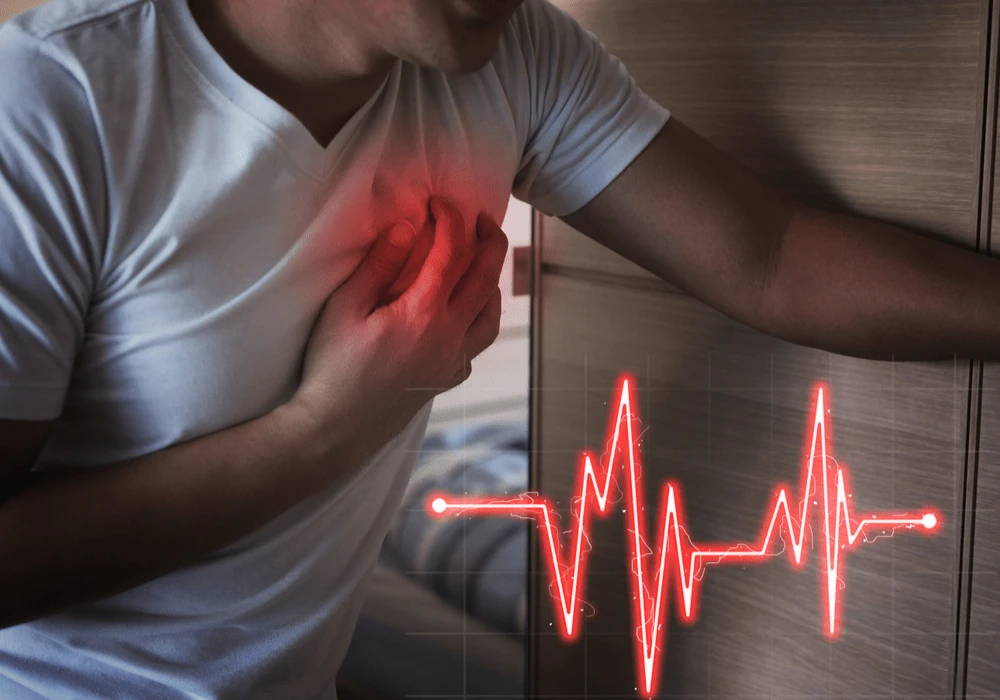
Heart diseases are a leading cause of death in America. It is also one of the costliest and most time-consuming chronic conditions to treat. Telehealth here offers options for people to easily manage their heart diseases at home through video and phone calls. Telehealth can be used for heart diseases in various situations, depending on the patient’s specific needs and the healthcare provider’s capabilities. We can use telepathy for the following: Usage of Telepathy for Heart Health: Remote monitoring of heart conditions: Patients with heart disease can benefit from telehealth by using remote monitoring devices to track their vital signs and symptoms, such as blood pressure, heart rate, and oxygen saturation. This data can be transmitted to healthcare providers, who can use it to make treatment decisions and adjust medications as needed. Virtual consultations: Telehealth can be used to provide virtual consultations with cardiologists for patients with heart disease. This can be especially helpful for patients who live in rural or remote areas, where access to specialists may be limited. Follow-up care: Telehealth can be used for follow-up care after a patient has been treated for heart diseases, such as after a heart attack or heart surgery. Patients can connect with their healthcare providers virtually to discuss their progress and receive guidance on lifestyle modifications and medication management. Cardiac rehabilitation: Telehealth can be used for remote cardiac rehabilitation programs, which can help patients with heart disease improve their physical activity, nutrition, and overall health. Patients can participate in virtual exercise classes and receive healthy eating and stress management guidance. Pros and Cons of Telehealth: Telehealth, like any other form of healthcare, has its own set of advantages and disadvantages. Here are some of the pros and cons of telehealth: Pros of telehealth: Cons of telehealth: Conclusion: Telehealth is a valuable tool for healthcare delivery that has both advantages and disadvantages. It can improve access to care, increase convenience, and reduce healthcare costs. However, telehealth also has limitations, such as technical issues, a lack of physical exams, and privacy concerns. As the use of telehealth continues to grow, it is important for healthcare providers and patients to carefully consider the benefits and limitations of this form of healthcare and work together to ensure its effective and safe use. At Heart Experts of Florida are putting in the utmost effort to provide careful consideration of its limitations. Telehealth can be an effective way to improve healthcare access and outcomes for patients.
Embracing a Healthier Lifestyle: Post Angioplasty and Stenting

When it comes to managing heart disease, making lifestyle changes is often an essential part of the treatment plan. For people who have undergone angioplasty and stenting procedures, adopting a healthier lifestyle can significantly improve their recovery and long-term outcomes. These changes may include modifications to their diet, exercise routine, smoking habits, stress management, and medication side effects. By implementing these lifestyle changes, individuals can not only reduce their risk of future heart complications but also improve their overall quality of life. What is Angioplasty? Angioplasty is a minimally invasive procedure through which the interventional cardiologist removes the blockage from the artery for a smooth flow of blood, thus ensuring a sufficient supply of oxygen to your heart muscles. Blocked and narrowed arteries usually result in a heart attack, whereas angioplasty reduces the risk of a heart attack through the restoration of enough blood and oxygen to the heart. What is Stent Implantation: Sometimes patients who undergo angioplasty also have to undergo stent implantation. A stent is essentially a small, latticed metal scaffold that is introduced into a patient’s blood vessel on a balloon catheter. Most stents in the current era have a drug coating on them for better clinical outcomes. Different forms of stents are chosen based on the location to be inserted. What are the Lifestyle Changes After Angioplasty and Stent Placement: The post-recovery period can be long, and the body takes its time to slowly regain its strength. The important lifestyle changes that patients need to adopt after angioplasty include: Quit Smoking: Life after angioplasty strictly involves smoking cessation. Smoking can damage the artery lining and also cause fat buildup. This, in turn, causes the narrowing of arteries and affects blood flow in the body. Both active and passive smokers are likely to develop severe heart conditions due to exposure to smoke. Continue Medication and Doctor Consultation for any Irregularities: After the angioplasty, the doctor typically advises the patient to take certain medicines that are meant to enhance heart recovery and help regain body strength. Mostly, doctors prescribe medicines that serve as blood thinners, which ease blood flow, dissolve clots, and widen blood vessels. The doctor may even prescribe painkillers to ease the pain. Along with these medicines, the patient may also experience a few side effects, which should be immediately reported to the doctor. Healthy Diet: After angioplasty, another critical lifestyle change includes adaptation to a healthy diet. The doctor can recommend some strict diet changes. Patients are often advised to avoid foods containing high levels of sodium, cholesterol, trans fat, saturated fat, and so on. The diet for heart patients should include foods rich in iron, and essential vitamins such as green leafy vegetables, whole grains, fish, low-fat dairy, fiber, dry fruit, etc. The patients should ensure to consume nutritionally balanced food. Increase Physical Activity: Physical inactivity is one of the leading causes of developing heart problems. Once the heart condition is cured through angioplasty or stent placement, patients need to ensure that they increase their physical activity as per the guidance of their doctors. Patients should start with low to moderate-level physical activity like taking a small walk or going up and down the stairs once or twice a day. Patients should also consider doing light exercises like aerobics and stretching. But they should not be fully provoked through strenuous workouts. Obese People Should Manage Weight: Weight management is another crucial lifestyle change after angioplasty that should not be ignored, especially if you are already obese. Weight management is directly linked to your heart. Cardiac arrest is often caused by obesity. Weight can be managed by combining physical activity with a healthy diet. The patient must regulate their intake of calories, and they should add nutritional foods to their diet like vegetables and fruits, as they help to regulate weight naturally. Reduce Stress levels: Stress is never good for the heart. Increased stress levels can worsen heart conditions, cause blood pressure problems, and damage the arteries. These conditions then lead to surgeries like angioplasty. An excellent way to manage stress levels is to practice relaxation techniques such as yoga, and meditation, or to practice hobbies that reduce stress and make you feel relaxed. Limit Alcohol: Life after stent placement and angioplasty should have no room for alcohol consumption. Excessive alcohol consumption can lead to a wide variety of health complications, from increased blood pressure to strokes, irregular heartbeats, and heart muscle disease. High consumption of alcohol can also lead to obesity, fatigue, and stroke, all of which can trigger heart problems again. Regular Follow-up: Patients should adhere to regular follow-ups with their doctors. They should not miss any check-ups and keep an eye on cholesterol and blood sugar levels to monitor them. They should consult their doctor immediately if they notice any small changes or pain. Conclusion: Lifestyle changes play a crucial role in the recovery and management of heart diseases, particularly after angioplasty and stenting procedures. By making changes to their diet, exercise routine, smoking habits, stress management, and medication adherence, individuals can reduce their risk of future heart complications and improve their overall health. Our doctors at Heart Experts of Florida help you take control of your health by adopting these changes and helping their patients enjoy a happy, healthy life.
Ways to Achieve Your Heart Health Goals | Heart Experts of Florida

People throughout the world resolve to make changes. These changes vary from losing weight, quitting smoking, exercising often, and reducing alcohol consumption. Your behavior and everyday actions can have a positive impact on your heart health. Your heart is responsible for pumping about 2,000 gallons of blood while delivering essential nutrients and oxygen to cells and organs throughout the body. Steps to Protect Your Heart’s Health: The heart should be protected the right way, and there are different steps to nourish your heart and keep it healthy. Conclusion: Achieving your heart health goal is a crucial step towards leading a healthy and fulfilling life. By implementing the strategies discussed above, you can significantly reduce your risk of heart disease and improve your overall health and well-being. Small changes can lead to significant improvement in your heart health over time, so stay committed and consistent. At Heart Experts of Florida, we strive to provide the best care so you can achieve your heart goals and enjoy a long, healthy life.
Comparison Between Human Body With Machine:

The comparison of a human body to a machine is an analogy that helps us understand its intricate working and complex processes. While the human body possesses unique characteristics that go beyond mechanical systems, examining it from a machine-like perspective can provide insight into its structure, function, and interconnectedness. Structural Organization: Like a machine, the human body has a well-defined structural organization. It consists of various systems, organs, tissues, and cells that work together to maintain overall function and homeostasis. Just as a machine is composed of different parts with specific roles, the human body has distinct components responsible for performing specific functions. Mechanical components: The human body contains mechanical components that resemble those found in machines. Bones, for example, can be likened to the structural framework of a machine, providing support, protection, and mobility. Similarly, joints function as hinges or pivot points enabling movement and flexibility. Energy input and output: Machine requires an energy source to operate, and the human body is no exception. It obtains energy through consumption of food, which is converted into usable energy. This energy fuels bodily functions, just as an energy source powers a machine. Control systems: Machine typically have control systems that regulate their operation, and the human body possess similar mechanisms. The nervous system acts as a control center, transmitting electrical impulses to coordinate bodily functions and respond to internal and external stimuli. The endocrine system, through hormones regulates various processes and maintains homeostasis. Information processing: Machines often involve information processing, and the human body exhibits similar capabilities. The brain serves as a complex information processing center, receiving analyzing and interpreting sensory input. It generates responses and coordinates actions, similar to the way a computer processes data and produces output. Interconnectedness: In many machines the different components are interconnected and rely on each other for proper functioning. Likewise, the human body system is interconnected and interdependent. For instance, the cardio vascular system transports oxygen and nutrients to cells, while the respiratory system provides oxygen and eliminates carbon dioxide. These systems rely on each other to maintain overall functioning. Repair and maintenance: Machines often require repair and maintenance, and the human body possesses mechanisms to fulfill similar functions. When injured, the body can heal itself through processes like tissue regeneration and wound repair. Additionally, the immune system acts as a defense mechanism, protecting the body from pathogens and aiding recovery. Conclusion: While the analogy of a human body as a machine has its limitations, it offers a useful framework for understanding the structure and function of the human body. By examining a human body from a machine-like perspective, we can appreciate its complexity, interconnectedness, and remarkable processes that allows us to function and thrive. At Heart experts of Florida, we try to educate our patients regarding the similarity and difference between the body and machine. So they can strive to take care accordingly.
